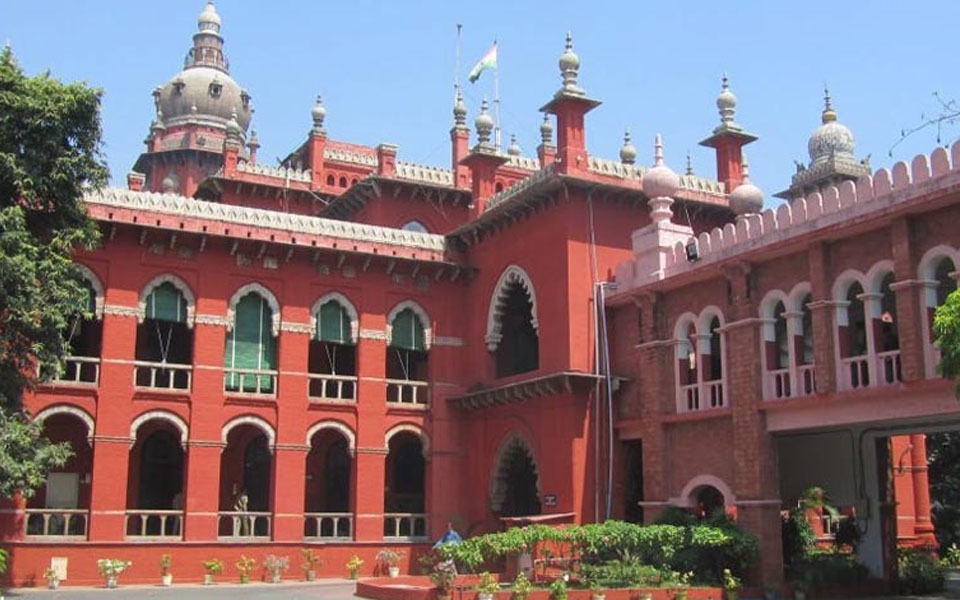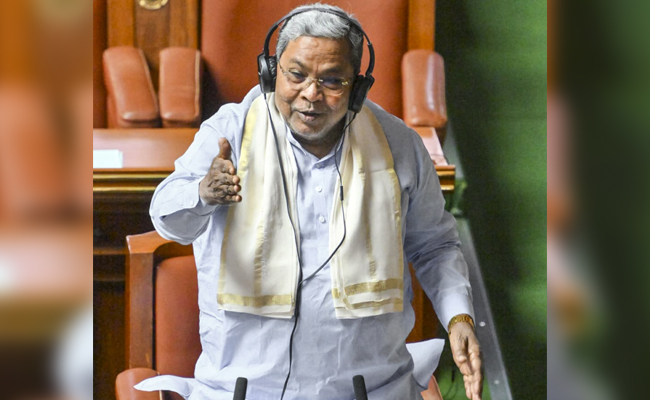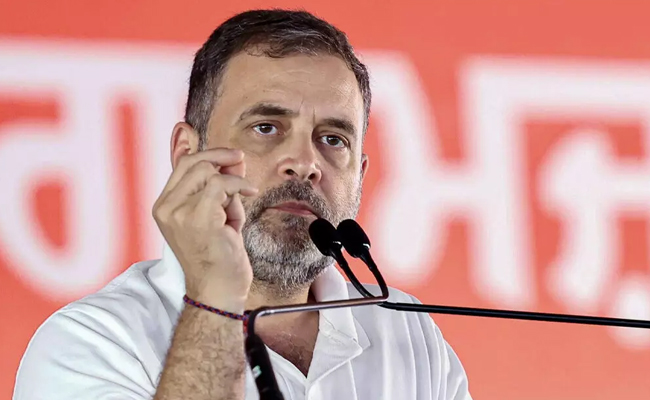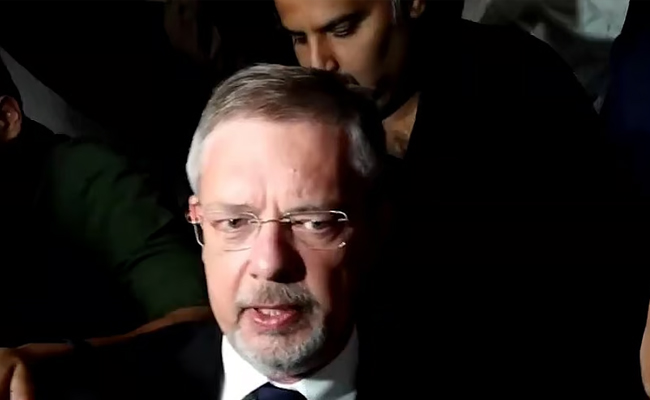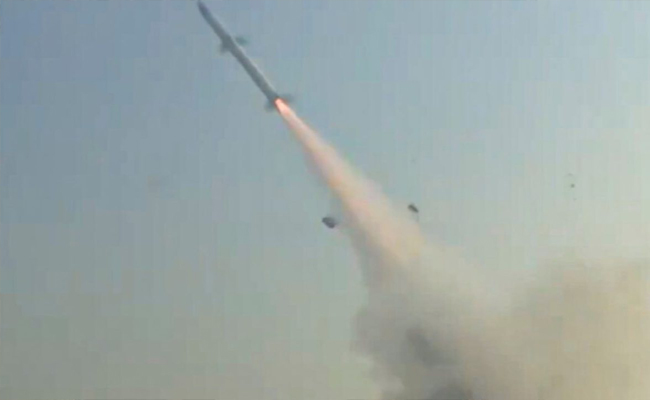Chennai, June 14 : In a breather to the AIADMK government, the Madras High Court on Thursday gave a split verdict in the case of disqualification of 18 rebel-AIADMK MLAs.
Chief Justice Indira Banerjee upheld the disqualification of the 18 legislators ordered by Tamil Nadu Assembly Speaker P. Dhanapal while companion judge Justice M. Sundar held that the Speaker's decision was invalid.
Justice Banerjee said in view of the contradicting judgements, the case will now be transferred to a third judge. The Chief Justice made it clear that she will not decide on the third judge and that decision will be taken by a senior judge. Justice Huluvadi Ramesh is most likely to decide the name of the third judge.
Maintaining status quo, the court also said till the case is finally decided, no by-elections should be held.
The Chief Justice in her judgement said the Speaker's decision could not be called unreasonable and need not be interfered with by the court.
On the other hand, Justice Sundar said he differed with the Chief Justice and cited a Supreme Court judgement to say that the High Court can interfere in the order of the Speaker which was not within the confines of law.
Tamil Nadu Assembly Speaker Dhanapal had disqualified 18 legislators after they met the Governor and gave a memorandum expressing loss of confidence in Chief Minister K. Palaniswami and requested him to appoint a new Chief Minister.
The case filed by the disqualified legislators against the Speaker's action is pending before the High Court since September, 2017. The court had reserved the judgement on January 24.
Hours before the judgement, Tamil Nadu Advocate General Vijay Narayanan met Palaniswami.
Earlier in the day, the disqualified law makers met sidelined AIADMK leader T.T.V. Dinakaran and discussed the steps to be taken ahead.
As per the party position in Tamil Nadu assembly, the ruling AIADMK has 116 members followed by DMK-89, Congress-8, IUML-1, Independent-1, the Speaker and 18 vacant seats, totalling 234. Besides, there is one nominated member. In April, in a different case, the Madras High Court had said it could not interfere in the Assembly Speaker's domain.
On April 27, the court dismissed a petition seeking disqualification of 11 AIADMK legislators, including Deputy Chief Minister O. Panneerselvam, for voting against the government during a confidence motion moved by Palaniswami last year.
Dismissing the petition filed by DMK Whip R. Sakkarapani, the court said it could not interfere in the Assembly Speaker's domain.
The court said it had the power of judicial review of decisions taken but could not interfere in a matter where the Speaker had not taken a decision. It also referred to a case pending in the Supreme Court on a similar issue arising from Andhra Pradesh.
The disqualification petition was filed against 11 AIADMK legislators for voting against the confidence motion on Palaniswami government on February 18, 2017, defying the party whip.
At that time, Panneerselvam had rebelled against the party led by jailed leader V.K. Sasikala. Later, Panneerselvam merged his group with the one led by Palaniswami who sidelined Sasikala and her relative T.T.V. Dinakaran.
The petition for disqualification was filed by Sakkarapani soon after Assembly Speaker Dhanapal disqualified 18 legislators owing allegiance to sidelined AIADMK leader Dinakaran.
The legislators belonging to Dinakaran camp had also written to the Governor expressing their loss of confidence in Palaniswami and requested him to appoint a new Chief Minister. The case was filed by the disqualified legislators against the Speaker's action.
A total of 19 AIADMK legislators had submitted a letter to the then Governor C.V. Rao withdrawing support to Palaniswami.
They asked the Governor to initiate the process to install a new Chief Minister. Dhanapal issued notice to the 19 lawmakers asking them why they should not be disqualified under the anti-defection law.
Subsequently, one of the MLAs, S.T.K. Jakkaiyan, switched over to the Palaniswami side and Dhanapal disqualified the remaining 18 lawmakers.
Let the Truth be known. If you read VB and like VB, please be a VB Supporter and Help us deliver the Truth to one and all.
Bengaluru (PTI): The Budget Session of the Karnataka Legislature will begin here on Friday, with Chief Minister Siddaramaiah presenting the Budget for 2026-27, his record 17th as the state's finance minister.
This is another feat for Siddaramaiah, who recently surpassed D Devaraj Urs's record to become the longest-serving Chief Minister of Karnataka.
However, this has come amid speculation over a possible change of Chief Minister after the Budget session, citing a "power-sharing" arrangement between him and his deputy D K Shivakumar, at the time of the government formation in 2023.
According to official sources, Siddaramaiah as the finance minister, faces a "tightrope walk" as he must negotiate between containing the revenue deficit and funding his government's populist guarantee schemes ('Shakti', 'Gruha Lakshmi', 'Gruha Jyoti', 'Yuva Nidhi' and 'Anna Bhagya').
Faced with a revenue shortfall amid rising expenditure commitments, he has a task cut out to maneuver the state's finances while maintaining fiscal discipline.
As the CM is expected to look for resource mobilisation measures, speculations are rife that there may be an increase in taxes.
There are calls to trim the outlay on the 'guarantee' schemes, with annual spending for the five schemes exceeding Rs 50,000 crore. In 2025-26, the government allocated Rs 51,034 crore for the guarantee schemes.
Also to be factored in is an increase in the government's expenses like salaries, as it has decided to recruit for 56,432 vacant jobs.
The government expects a revenue shortfall of Rs 18,000 crore in the current fiscal (2025-26) due to factors like GST rate rationalisation among others, official sources said.
The total expenditure for 2025-26 was estimated to be Rs 4.09 lakh crore. However this may be lowered to about Rs 3.9 lakh crore, they said.
As per the 2025-26 Budget Estimates, the state's total liabilities by the end of March 2026 are projected at Rs 7,64,655 crore, which constitutes 24.91 per cent of the Gross State Domestic Product (GSDP), the government has said.
Meanwhile, Leader of Opposition in the Karnataka Assembly R Ashoka on Thursday took a dig at CM Siddaramaiah ahead of the state Budget presentation, claiming that the government is expected to borrow Rs 1.15 lakh crore and is likely to impose fresh taxes on the people.
He said the Budget would have nothing new, adding that its highlights would be criticism of Prime Minister Narendra Modi and repeated mentions of the five guarantee schemes.
The opposition is also expected to corner the government during the session on a host of issues, including the implementation of internal reservation among SCs during the recruitment process it decided to undertake -- the issue on which there is a rift between SC (Right) and SC (Left) factions within the ruling Congress.
Alleged diversion of Scheduled Caste Sub-Plan (SCSP) and Tribal Sub-Plan (TSP) funds to fund guarantee schemes, irregularities in the Karnataka Public Service Commission (KPSC) Mains examination and selection process, developmental issues, irrigation projects, and law and order are among the other issues on which the opposition is likely to target the government.
Several Bills, including an amendment to the Karnataka Prevention of Slaughter and Preservation of Cattle Act, 2020, aimed at allowing vehicles used for illegal transport of cattle to be released on an indemnity bond, and the Karnataka Crowd Control (Managing Crowd at Events and Place of Gathering) Bill, 2025, which was referred to a select committee, are likely to be tabled during the session.

